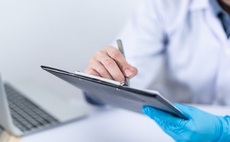Medical professionals still rely on pen and paper for communications - despite 2018 deadline for 'paperless NHS'
Despite government plans to make a 'paperless NHS' by 2018, most medical staff still rely on handwritten notes and word of mouth communication in order to share information. That's according to ...
To continue reading this article...
Join Computing
- Unlimited access to real-time news, analysis and opinion from the technology industry
- Receive important and breaking news in our daily newsletter
- Be the first to hear about our events and awards programmes
- Join live member only interviews with IT leaders at the ‘IT Lounge’; your chance to ask your burning tech questions and have them answered
- Access to the Computing Delta hub providing market intelligence and research
- Receive our members-only newsletter with exclusive opinion pieces from senior IT Leaders






















